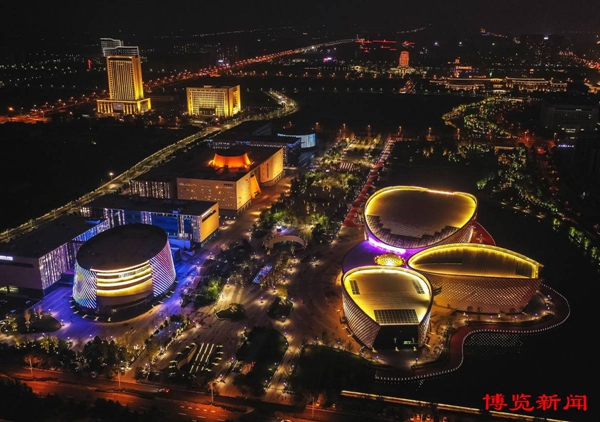The city of Zibo – located in East China's Shandong province – has been pushing to improve its urban and rural public cultural service facilities and the quality of those services, according to a news conference held on Oct 13.

The Zibo Culture Center is an impressive landmark in the city. [Photo/zbnews.net]
A number of cultural venues have been built, creating new landmarks over the past decade. One of them is the Zibo Culture Center, which cost 3.27 billion yuan ($490.7 million). An extremely popular venue, it has a library, a ceramics and glaze museum and a theater, among its features. Other public cultural service facilities, such as the Qi Culture Museum, the Boshan District Cultural Center and the new Gaoqing County Library, have also been built in succession in the city.
Moreover, Zibo has also vigorously developed a system of public cultural service facilities at the city, district (county), town (sub-district) and village (community) levels during the past decade. There are nine public libraries, nine cultural venues and 71 museums in the city – as well as 88 town (sub-district) level cultural stations and 3,107 village (community) level cultural service centers.
The area given over to public cultural facilities per 10,000 people has grown appreciably in the last 10 years and now covers 1,325 square meters, ranking Zibo second in Shandong province.
In addition, the city has made great efforts to promote the construction of new public cultural spaces, such as its study and cultural stations, in the past decade. During the period, it has built 39 city studies, 120 reading bars, 120 rural library demonstration sites and 491 grassroots cultural service centers.
All residents can now attend cultural events in their communities within a 15-minute walk.
Moreover, a host of cultural events have been held in the past 10 years, such as the Zibo Urban Theatre Festival and the Voice of Zibo music festival.
As the birthplace of the ancient Qi culture, Zibo has also spared no effort in inheriting and commercializing its fine traditions.
The municipal government has organized a series of meetings to help its local businesses in various sectors – including cultural tourism, real estate, cultural innovation and urban development – to research, develop and market cultural and creative products.
Source: shandong.chinadaily.com.cn